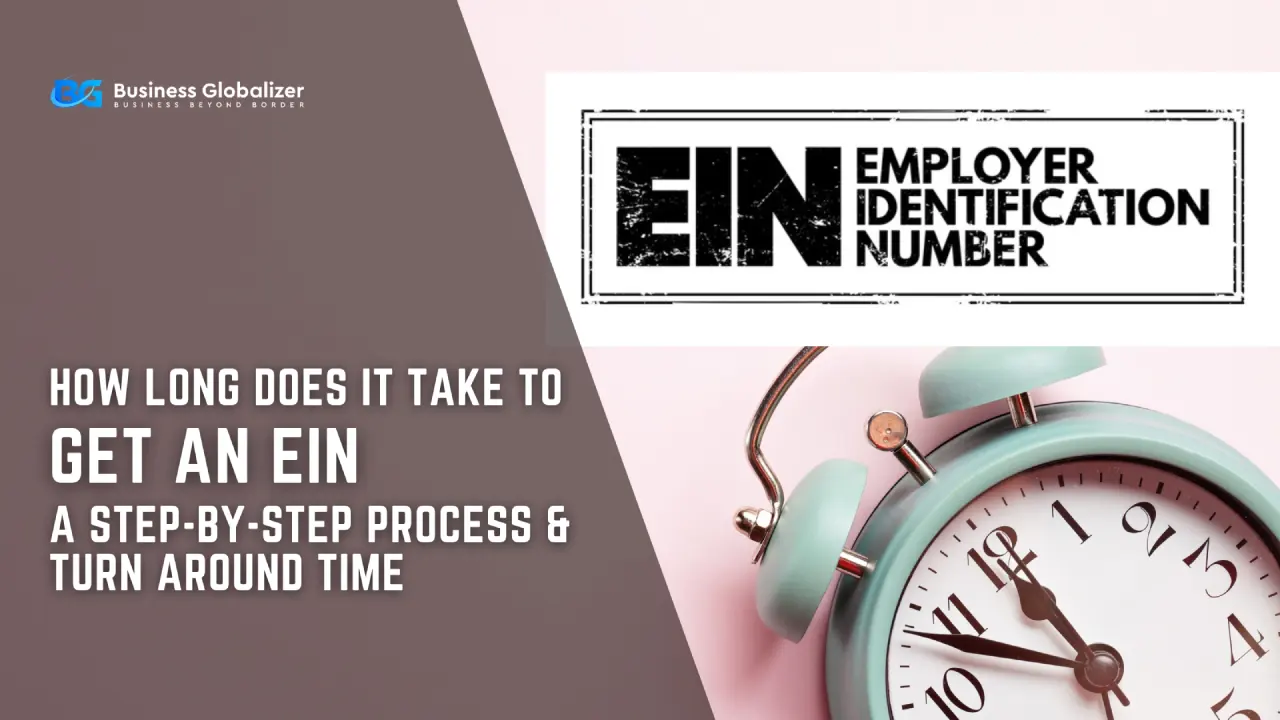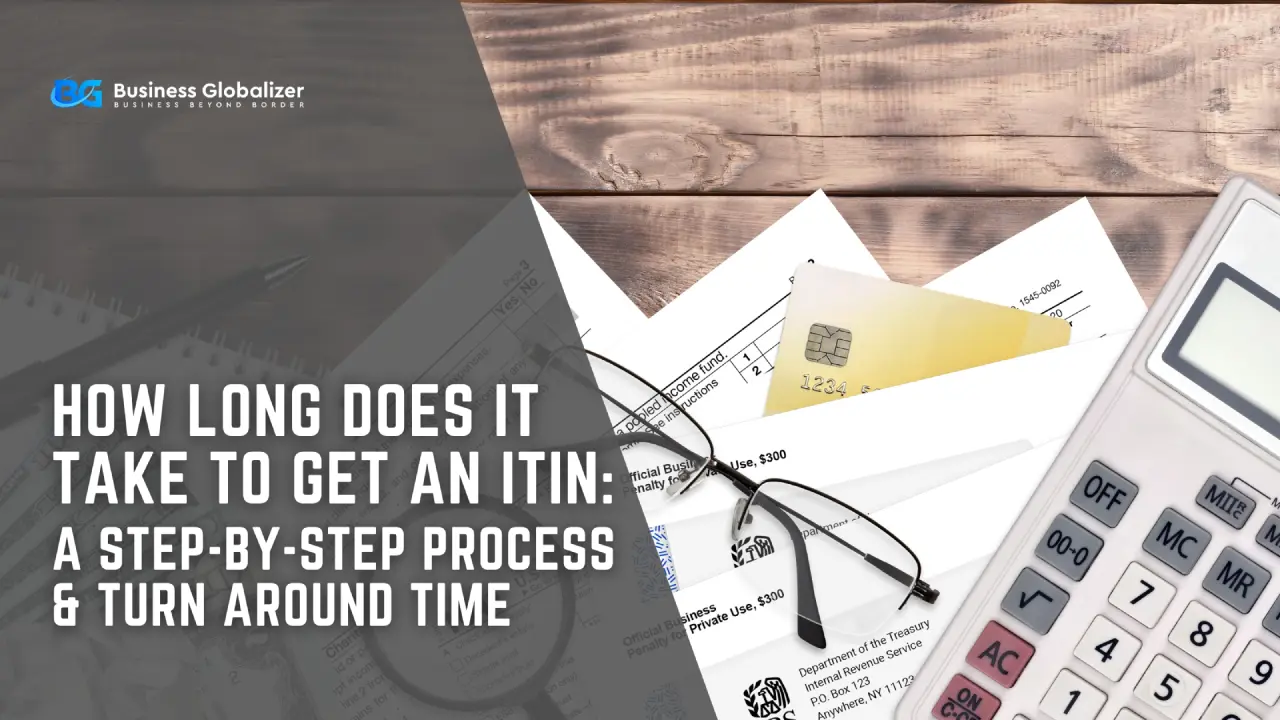When doing business as a foreign entrepreneur, you probably take on the stress of various things. For instance, calculating rents and costs, legal troubles, and designing layouts for building physical office space as if you don’t miss any packages or mail. But what if you can receive business mail and packages without establishing a physical office space when doing business in the United States?
Yes, you are hearing right. You can run a business in the United States using a virtual office address from another country. Both PO boxes and virtual addresses have distinct benefits. In this blog, we will explore the advantages of each option and help you comprehend the topic “PO Box vs. virtual address.”
Let’s learn!
What Is the PO Box?
To do business in the U.S., you don’t need a physical office, as mentioned above. Instead, you can have a digital office space. But there is still one issue: which address will be used legally for receiving mail and packages? Here comes the PO Box to reduce this obstacle—
A PO Box, or Post Office Box, is a secure and locked mailbox within a post office. It can receive mail and packages, including registered and certified mail. PO boxes are assigned unique numbers and used as the mailing address.
PO boxes can be rented for a monthly fee. People rent these boxes to receive mail and packages safely. The PO box holds the mail received until users pick it up. There is no need to be concerned about mail theft. Users can receive the packages using a PO box without revealing their home address.
What Is the Virtual Address?
A virtual company address is when a company uses an address to get mail or official letters, even though they don’t have an actual physical office there. It’s also called a virtual business address. Companies use this address as the mail forwarding address to another location to access it from anywhere.
This address is a location associated with a business in the digital realm rather than a physical location. It provides Businesses or individuals with a physical street address, often in a prestigious location, without renting a physical office space for receiving business mail and delivery packages.
Virtual address providers offer various services, such as mail scanning, forwarding, and check depositing. This may offer additional features like phone answering services and meeting room access.
What Are the Pros and Cons of a PO Box?
Let’s discuss the advantages and disadvantages of using a PO Box service before moving on to the main topic of “PO Box vs. virtual address”:
Pros of a PO Box
- Privacy and Security: A PO Box provides privacy by keeping your home address confidential. It also provides security, as your mail and packages are kept in a secure, locked mailbox at the post office.
- Professionalism: A PO Box can provide a professional mailing address for businesses, separating business correspondence from personal mail.
- Reliability: You won’t miss important mail or packages due to not being home when they are delivered.
- Mail Handling: Some PO Box services offer additional features such as mail forwarding, email or text notifications, and accepting packages from various carriers.
Cons of a PO Box
- Cost: PO Boxes incur a rental fee, which can be a recurring cost. The size of the box and the location determine the price.
- Limited Space: The PO Box size limits the packages and the amount of mail you can receive. If you receive large packages frequently, this can be a significant limitation.
- Inconvenience for Some Deliveries: Some online retailers or shipping companies do not deliver to PO Boxes, requiring you to provide a physical address.
- No Physical Presence: For businesses, not having a physical storefront address might be a disadvantage in some situations, such as building credibility with local customers.
- Queue at the Post Office: During peak times, there might be a queue, making it inconvenient to pick up your mail.
- Limited Services: While essential mail services are covered, additional services like signing for packages might not be available at all locations.
What Are the Pros and Cons of a Virtual Address?
Let us now look at the benefits and drawbacks of virtual addresses:
Pros of a Virtual Company Address:
- Professional Image: A virtual company address provides businesses with an address in a prestigious business area, creating a positive first impression and enhancing credibility.
- Global Expansion: It allows businesses to establish a presence in multiple locations, enabling them to reach a wider audience and explore new markets.
- Mail Handling Services: Virtual address services offer comprehensive mail solutions, including mail forwarding, scanning, and secure package handling, ensuring efficient correspondence management.
- Privacy and Security: Businesses can keep their home addresses private, reducing the risk of unsolicited visitors and enhancing overall security.
- Flexibility: Business owners and remote teams can work from anywhere while maintaining a consistent and professional business address, offering operational flexibility.
- Access to Support Services: Many virtual address providers offer additional services like phone answering, meeting room access, and administrative assistance, streamlining business operations.
Cons of a Virtual Company Address:
- Cost: Virtual company addresses come with a subscription fee, which can be a significant ongoing expense, especially for premium or high-demand locations.
- Limited Physical Presence: Lack of a physical storefront might be a disadvantage in industries where clients prefer in-person consultations or businesses that require physical displays.
- Service Provider Reliance: Businesses depend on the reliability and efficiency of the virtual address provider; any issues on their end can impact mail handling and communication.
- Legal and Regulatory Compliance: Businesses must ensure compliance with local regulations, as some jurisdictions have specific rules regarding using virtual addresses for official documents and business registrations.
- Delivery Challenges: While virtual addresses offer mail forwarding, certain services or companies might still prefer delivering to physical addresses, posing potential hurdles.
- Perception Considerations: Some clients or partners might perceive businesses with virtual addresses as less established or unreliable than those with physical storefronts, affecting their perception of the company.
When deciding between a virtual company address and a PO Box, businesses should carefully weigh these factors, considering their specific needs, budget, industry requirements, and growth plans.
What to Consider When Choosing Between a PO Box and a Virtual Address
A virtual address and a PO Box are both mailing solutions. But still, businesses should carefully weigh these factors, considering their specific needs, budget, industry requirements, and growth plans, when deciding between a virtual company address and a PO Box.
- Security and Privacy:
PO Box offers privacy and security by keeping your home address confidential. Mail and packages are stored securely at the post office. Virtual addresses provide privacy using a commercial address, but security depends on the service provider’s measures. - Physical Access:
You can physically visit the post office to collect your mail and packages during operating hours. Some virtual address services offer mail forwarding, allowing you to receive physical mail anywhere. Ensure the service can forward mail to your location if physical access is essential. - Mail Access and Convenience:
Post offices often offer services like mail forwarding, package acceptance, and the ability to hold mail while you’re away. Many virtual address services offer mail scanning, forwarding, and package handling services. You can consider the specific services offered by the virtual address provider. - Cost:
Typically, a PO Box has a regular rental fee. The cost varies based on the box size and the post office’s location. However, virtual addresses often involve a subscription fee. Compare the costs of different virtual address providers, considering the services included in the subscription. - Location:
You must select a specific post office location for your PO Box, which might be inconvenient if you move frequently where virtual addresses are not tied to a specific location, making them suitable for travelers, digital nomads, or businesses without a fixed location. - Mail Volume and Package Size:
Limited space might be a concern if you receive a large volume of mail or frequently receive sizable packages when choosing a PO Box. Some virtual address services have options for receiving packages of various sizes. Check the limitations on package size and weight. - Business Image:
For businesses, having a physical PO Box might not project a professional image compared to a commercial address. At the same time, a virtual address provides a professional image, especially if you choose a prestigious location for your virtual address. - Delivery Limitations:
Some companies and services may not deliver to PO boxes, requiring you to provide a physical address. Similar to PO Boxes, certain services might not be delivered to virtual addresses. Verify with the provider about receiving packages from specific carriers. - Legal and Business Requirements:
You need to check local regulations and requirements to ensure a PO Box address is acceptable for official purposes and business registrations. Some regions might have restrictions or regulations concerning the use of virtual addresses for official or legal purposes.
Lastly, consider your specific requirements regarding mail volume, package size, budget, and the level of convenience you need before deciding between a PO Box and a virtual address. It’s also essential to research and choose a reputable provider for a virtual address service.
What Is the Difference Between a Virtual Company Address and a PO Box?
Here, we are going to discuss the most frequently asked question. Let’s understand the topic “PO Box vs. virtual address”:
1. Nature of the Address
- Virtual Company Address: A virtual office service will give you a virtual company address—a commercial address. It can be located in affluent business districts and is often associated with office spaces and meeting rooms. Businesses can use this address to receive mail, register the business, and project a professional image without needing a physical office presence.
- PO Box: A PO Box is a mailbox within a post office. It provides individuals and businesses with a secure location to receive mail and packages. A PO Box is not associated with a commercial office space, unlike a virtual company address.
2. Physical Access
- Virtual Company Address: Typically, virtual company addresses do not provide physical access to mail. Instead, they offer services like mail forwarding and scanning, allowing businesses to receive mail electronically.
- PO Box: Owners of PO Boxes can physically go to the post office during its operating hours to collect their mail and packages.
3. Mail Handling Services
- Virtual Company Address: Virtual addresses often include mail forwarding, mail scanning (where physical mail is scanned and sent electronically), and mail storage. These services cater to businesses that need efficient handling of their correspondence.
- PO Box: PO Box services usually include basic mail handling, with options for mail forwarding and package acceptance in some cases. However, the range of services is generally more limited than virtual addresses.
4. Image and Credibility
- Virtual Company Address: A company address in a prestigious location can enhance a business’s professional image and credibility. It implies a physical presence in a desirable business area.
- PO Box: While a PO Box provides privacy and security, it may not convey the same level of professionalism as a commercial address. Some businesses prefer a commercial address for a more polished image.
5. Legal and Business Use
- Virtual Company Address: Virtual addresses are often suitable for official business correspondence, including business registrations and licenses. However, the acceptability of a virtual address for legal and official purposes may vary by jurisdiction.
- PO Box: PO Boxes are generally acceptable for official purposes and business registrations, but it’s essential to check local regulations to ensure compliance.
Businesses and individuals choose between a PO box and a virtual address based on their specific needs for privacy, convenience, professionalism, and the level of services required.
| Criteria | Virtual Company Address | PO Box |
|---|---|---|
| Nature of the Address | A virtual office service will give you a virtual company address, which is a commercial address. | A PO Box is not associated with a commercial office space, unlike a virtual company address. |
| Physical Access | Typically, virtual company addresses do not provide physical access to mail. | Owners of PO Boxes can physically go to the post office during its operating hours to collect their mail and packages. |
| Mail Handling Services | Often includes services like mail scanning, mail forwarding, and package handling. | Provides essential mail services and may offer additional services such as mail forwarding and package acceptance. |
| Image and Credibility | A virtual company address in a prestigious location can enhance a business’s professional image and credibility. It implies a physical presence in a desirable business area. | While a PO Box provides privacy and security, it may not convey the same level of professionalism as a commercial address. Some businesses prefer a commercial address for a more polished image. |
| Legal and Business Use | Virtual addresses, including business registrations and licenses, are often suitable for official business correspondence. | PO Boxes are generally acceptable for official purposes and business registrations, but it’s essential to check local regulations to ensure compliance. |
Should I Choose a Virtual Office Address or a PO Box?
A virtual office address is often a superior choice for non-residents compared to a PO box. Virtual addresses provide 24/7 online mail access, essential for non-residents who can’t easily visit a post office. They offer flexibility with services like mail scanning and forwarding, enhancing convenience.
Additionally, virtual office addresses offer a professional business address, which is crucial for non-residents to establish a business presence abroad. While PO boxes serve as primary mail receptacles, they lack the convenience and flexibility of virtual addresses.
Examples of ideal virtual address users include business owners launching ventures abroad, freelancers separating personal and professional lives, frequent travelers needing mail forwarding, and international students receiving mail from family. Research different providers, considering cost, features, and reputation before deciding.
You can ask our customer assistance for any kind of business-related help.
FAQs on PO Box Vs. Virtual Address
Q: Can I register my business with a PO Box address?
A: Most states don’t allow businesses to use a PO Box to register their LLC, corporation, or partnership. A physical street address is required for a business location. Consider using a virtual address if you don’t have a physical address.
Q: Can a business use a PO box as a legal address?
A PO box in most jurisdictions cannot be used as a legal or registered business address. While a PO Box is a secure and convenient way to receive mail and packages, it is not a physical location where business activities occur, which is often required for legal or official purposes.
Q: Is the virtual address the same as the PO box?
No, a virtual address and a PO Box are not the same. A virtual address is a commercial address associated with a prestigious location that offers services like mail forwarding and scanning. A PO Box is a secure mailbox within a post office facility, providing essential mail handling services with physical access to collect mail and packages.
Q: Are there any PO Box alternatives?
Yes, there are several alternatives to PO Boxes, including virtual mailbox services, coworking spaces, private mailbox services, mail and parcel centers, remote business address services, and digital mail solutions. These options offer different features and services for handling mail and packages.
Bottom Line
We hope you understand today’s topic, “PO Box vs. Virtual Address.” If you have any further questions, please contact us.
In conclusion, whether you opt for a reliable PO Box or a versatile virtual address, both choices open doors to smoother business operations. It all depends on your unique needs and aspirations. So, make your pick and let your business story unfold confidently and conveniently with Business Globalizer.






